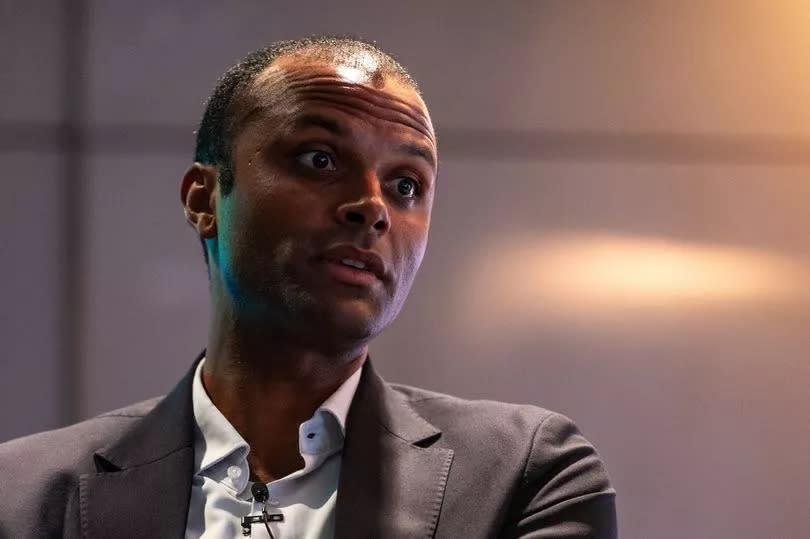PFA chief slams Premier League transfer rule that makes it 'nonsensical' to keep academy talent

The chief executive of the Professional Footballers' Association has slammed Premier League financial regulations, branding them "nonsensical" and "counterproductive" for incentivising academy player sales.
Under current rules, revenue from the sale of a homegrown talent is considered 'pure profit' immediately on the books, making such transactions appealing for clubs looking to increase income and steer clear of penalties under the league's profitability and sustainability rules (PSR).
Maheta Molango has criticised this policy, emphasising that it serves no one's interests. As quoted by the Press Association, the PFA boss said: "It's yet another good example of how players need to be at the table.
"We need to be part of those discussions, otherwise you end up introducing rules which make sense in a nice office with air conditioning, but in practice don't make any sense.
"How can it make sense that due to the rules you end up selling an academy player? It doesn't make sense for the club either because this is part of your identity, part of what makes the club what it is.
"You end up with nonsensical situations that meet the rules but are counterproductive for the players, but also for the club and also for the fans.
READ MORE: Arsenal, Chelsea and Spurs wage bill compared to Premier League rivals
READ MORE: Arsenal and Chelsea could grant Isak special request to complete £115m transfer
"Fans want to see their academy players. Those are the ones who make you dream, that create that bond with the club. This is why the governance of football needs to change."
The rules certainly don't mandate clubs to offload their academy talents, but it's become an easy loophole for many to cover the cost of new signings. The PSR is slated for introduction next season, with plans afoot to have them supplanted by further measures to regulate spending by the 2025-26 campaign.
Of the anticipated regulations being tested out in a pilot run next season is the top-to-bottom anchoring (TBA) initiative which will enforce the ceiling on any clubs expenditure on salaries, transfers and agents' commissions at quintuple the projected smallest prize pot allocated to any one team within that season.
Any measures reflecting a concrete wage cap are set to meet resistance from the PFA, who've recruited sports barrister Nick De Marco to plead their case before the Premier League. Success met De Marco previously when he was instrumental in withdrawing an EFL wage cap imposed in 2020.
Speaking on the TBA proposition, Molango said: "There needs to be a consultation. Whether we all have the same concept of consultation I'm not sure. Consultation is not having a crazy idea, hearing from someone, tweaking it a bit and having something a little less crazy, but still crazy.
"This is not consultation. We hope to be able to follow the rules, what the PFNCC rules say, once we have sufficient information we'll assess and decide next steps."
In these matters, the PFNCC, or Professional Football Negotiating and Consultative Committee, is called upon to mull over issues relating to players and their employment conditions. Molango added: "(The PFNCC is) a mechanism that forces people to come to the table and agree.
"It means we as players could not put forward something that the league will not agree (with), but equally the league cannot force upon the players stuff that does not make sense for the players.
"If you have people who are sensible around the table, then it forces a discussion, it forces everyone to think about all the consequences of what they're trying to do."
The Premier League has been contacted for comment. The PFA is currently involved in a legal action in the Belgian courts against FIFA over its scheduling of the new 32-team Club World Cup next summer.
This scheduling has already resulted in the African Cup of Nations (AFCON) being switched to a December 2025 start, running over Christmas and concluding on January 18, 2026. Molango fears this will place players in an impossible situation, and make African players a less attractive recruitment option to clubs.
Expressing his concern, he said: "I find it very disrespectful that it is always this competition that needs to give (way). It's not normal that a player in England needs to make a choice between the Christmas period, which is the crucial period for the clubs, and their international team, knowing that it's important to him and that the consequence of not going to the national team has consequences for his family back home."
The unanswered query floated in the air: "Why should a player be put in that situation? And will it really hamper the chance of an African player to be hired by a club?"
According to FIFA's present regulations, clubs have the liberty and likelihood of denying player release for both AFCON and the World Cup in 2026. As of now, there's still silence from FIFA when it comes to comments on this issue.

 Yahoo Sport
Yahoo Sport 






































